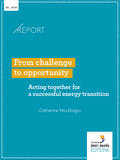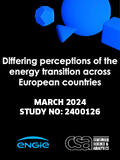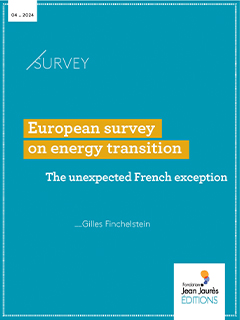Engaged European Citizens
The CSA survey reveals some highly encouraging attitudes: 9 out of 10 European citizens want the transition to progress. This is reflected in their actions: 64% claim to have already acted, individually, in favor of the transition (reducing consumption, renovating housing, etc.).
The transition is underway, but the movement remains fragile. In fact, 45% of those surveyed recommend proceeding cautiously, and one in two youths believe the transition can be stopped. Furthermore, the study reveals significant disparities between countries. While Southern European countries such as Portugal, Spain, or Italy want to further pursue the transition, those in Northern Europe, notably Belgium and the Netherlands, express more reservations. In Germany, there are as many as 15% of citizens who wish go back.
Europeans also doubt the ability of Europe to achieve its carbon neutrality goal by 2050. Nearly half of those surveyed consider this ambition unrealistic, rising to 68% in Germany. The main concern, for 47% of Europeans, is the cost of investments required to implement the transition. And while it is generally perceived as an opportunity for the planet, innovation, and health, a third of respondents see it as a threat to their purchasing power, with even stronger reservations in countries like France, Belgium, and the Netherlands.
"We must listen to and respond to these doubts, because making the energy transition a success requires the mobilization of everyone. And that is where we have a key role to play. In the eyes of Europe’s citizens, after governments, it is the major industrial groups specializing in energy that are the most legitimate players in driving the energy transition forward. ENGIE is up to the task. Our 97,300 employees, including 78,000 in Europe, are mobilized on a daily basis to develop a low-carbon energy system and make it affordable–in particular renewable energies (electricity and gas), as well as energy efficiency and sobriety solutions. With the support of the Fondation Jean-Jaurès, we are keen to counter skepticism with our knowledge of the reality on the ground," explains Catherine MacGregor, ENGIE CEO, in the introduction of the advocacy piece published under the auspices of the Fondation Jean-Jaurès.
Energy transition is within our grasp and brings opportunities
ENGIE holds a positive vision of the energy transition. We know it is within reach because we know the levers to implement it: massive deployment of renewable electricity and gas energies, development of flexibility solutions and infrastructures necessary for a decarbonized system, and not to mention efforts towards energy sobriety and efficiency.
Implementation comes with a cost, of course, but it also brings opportunities for job creation, energy cost reduction, and improvement of quality of life. The cost of inaction would be incomparable. For example, according to the International Energy Agency (IEA), the global economy could lose 14% of GDP in the case of a 2.6°C temperature increase.



